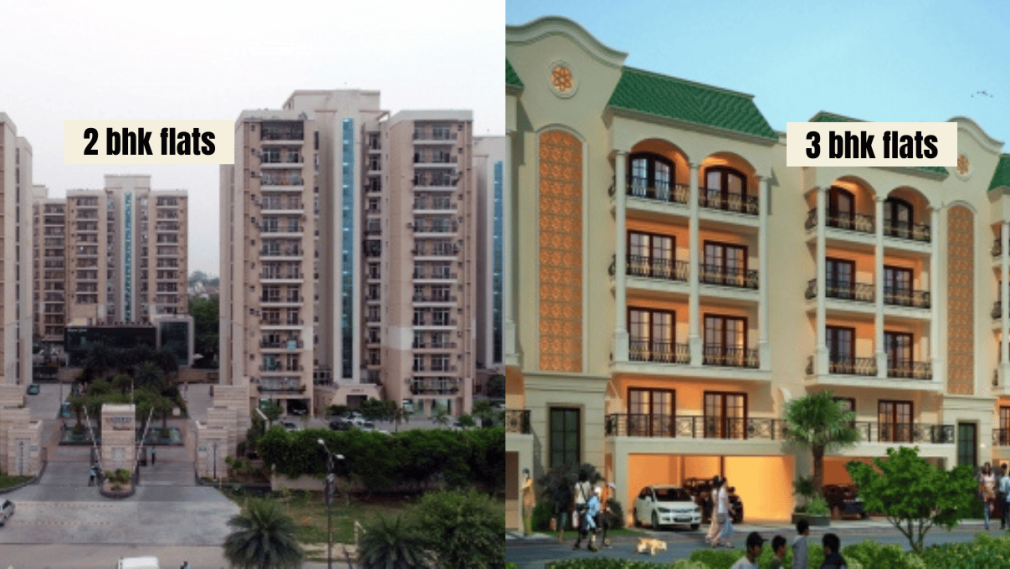In the last two decades, we have seen unprecedented growth in the Indian markets. Globally, the Indian economy stands among the top five nations, with many opportunities and future potential. This trend has attracted and motivated International buyers to own properties in India.
Understanding the structure of stamp duty and registration charges is the first step towards buying property in India. Whether you are a Foreigner or a Non-Resident Indian (NRI), Stamp Duty for International Buyers has many rules and regulations to adhere to.
So, can international Buyers residing in other countries buy properties in India? Well, the simple answer is no. They can only buy once they meet the minimum residency requirement of 182 days in a financial year. Diplomats have the exception of buying and selling property in India only after approval from the Ministry of External Affairs. NRI (Non-resident India), OCI (Overseas Citizen of India), and PIO (Person of Indian Origin) have to follow specific rules to buy and sell property in India.
In this blog, we will provide step-by-step information on all charges and costs for international buyers in India who are buying property. Many legalities are involved in Property Taxes for International Investors in India, so you must grasp all the information to fulfill the property ownership criteria.
Understanding Stamp Duty and Registration Charges
Stamp Duty is defined by the fees levied by the state government on the owner when they buy a new property. These charges can vary depending on several factors, such as the nature of the property, market value, location, age, and gender of the buyer. Generally, the Stamp duty charges are between 5% and 8%, with some exceptions in states that vary based on different factors.

Registration Charges are the fees the government levies when naming a particular property to a specific owner. The government must maintain a registry for land documents, and charges are imposed to add the owner’s name to that piece of land. These charges bind the legality of the owner to the land specified. Registration charges are fixed values from the total property cost. Again, based on several factors, these charges lie between 1 and 2% of the property’s total market value.
Stamp duty and registration charges are essential factors in buying property in India. If you don’t pay Stamp duty and registration charges with your property documents, you are not assumed to be a legal owner of the designated property.
Stamp Duty for International Buyers
In India, Stamp duty charges are levied based on the circle rate. So, if the property value is lower than the current circle rate, then the present value prevails. However, if the property transaction value is higher than the present circle rate, then the stamp duty is taken on the original value of the property. To summarize, Stamp charges are calculated on the present circle rate or the property value, whichever is higher.
Factors influencing stamp duty rates (e.g., property value, location)
These are different factors that can influence stamp duty rates in India, such as:

- Property Value: The more the property’s value, the more the stamp duty charges can be levied.
- Property Type: Generally, commercial properties have higher stamp duty rates than residential properties.
- Location: Property location on urban or rural land can set the percentage value for your stamp duty.
- Purpose: Stamp charges vary depending on the purpose of every property Sale, buy, lease, or transfer of ownership.
- Age & Gender: Many states in India offer lower stamp duty rates for women and senior citizens.
State-wise variations in stamp duty rates
Here is a state-wise stamp duty variation rate for key Indian states
| State | Stamp Duty Rates |
|---|---|
| Haryana | For males – 7% in urban areas, For females – 5% in urban areas |
| Rajasthan | 5% (Male), 4% (Female) |
| Punjab | 7% (Male), 5% (Female) |
| Karnataka | 5% (above Rs 45 lakh), 3% (Rs 21-45 lakh) 2% (Less than Rs 20 lakh) |
| Jammu and Kashmir | 5% |
| Gujarat | 4.90% (No charges for female) |
| West Bengal | Upto Rs 1 crore – 6%, Above Rs 1 crore – 7% |
| Uttarakhand | Male – 5%, Female – 3.75% |
| Maharashtra | 6% for male, 5% for female |
| Himachal Pradesh | 5% |
Stamp Duty in major cities such as Delhi has been fixed at 6% for Males and 4% for female owners; Mumbai (6% for Men and 5% for women); Bangalore (3% for properties up to 45 Lakhs and 2% for properties less than 20 Lakhs); and Chennai (7% of the total market value for the property). International buyers should opt for Top Builders in India who provide end-to-end solutions when buying property.
Also Read: Stamp Duty and Registration Charges on Property in Delhi
Registration Charges for International Buyers
The government levies registration charges on property owners to register the property in their name. In India, registration charges are charged for the total property transaction values between 1% and 2%.
Registration Charges are calculated based on the circle rate or market rate of the property. (Sometimes also known as the ready reckoner rate.)
Registration Charges for International Buyers will need to connect with their real estate team to know all about the various government taxes to have complete cost.
State-wise variations in registration charges.
| State | Registration Charges |
|---|---|
| Haryana | Upto Rs 50,000 |
| Rajasthan | 1% |
| Punjab | 1% |
| Karnataka | 1% |
| Jammu and Kashmir | – |
| Gujarat | 1% |
| West Bengal | 1% |
| Uttarakhand | 2% |
| Maharashtra | 1% |
| Himachal Pradesh | 4% for female (till Rs 80 lakh), 8% for female (above Rs 80 lakh), 6% for male (till Rs 50 lakh), 8% for male (above Rs 50 lakh) |
Registration charges vary in major cities such as Delhi (1%), Mumbai (1%), Chennai (4%), and Bangalore (1%). You should hire legal experts to get more state benefits and check with local authorities based on age, location, and gender. Connecting with local real estate companies can give more clarity and allow you to enjoy panoramic property views.
Also Read: Advantages of Reputed Builders for Buying Homes and Properties
Tips for International Buyers
Property Values have been skyrocketing in India in the last decade. Adding stamp duty, registration, property taxes, GST, TDS, brokerage fees, etc., can drastically affect your finances. Here are a few essential tips for budgeting your charges and improving your property investment
- Adding female names in the owners can significantly reduce your stamp duty. Joint accounts have some additional benefits in multiple states.
- Keep the circle rates on paying stamp duty charges.
- You can also register land or under-constructed property at lower charges.
- Gifting or adding a local name to the property owner also lowers the government fees.
- Make sure to get all state-specific benefits.
- You can also show these charges as tax benefits under section 80C.
Investors should understand the basic charges and taxes for owning a property in India. An Owner must follow all the legal formalities and avoid shortcuts that can land them in trouble later on. Especially for Property Taxes for International Investors in India, owners often ignore these values. So, hiring a real estate professional or legal team is recommended to get more benefits from state schemes.
Also Read: Residential vs. Commercial Property: Which Investment Option is Better for NRIs in India?
Conclusion
Stamp Duty for International Buyers varies from state to state in India. Buyers must understand the local authorities, laws, and regulations for paying the appropriate Stamp duty, registration charges, and taxes to avoid conflict later. Connecting with top builders in India can make it easier to buy a property. They have their legal team and experts to help buyers complete property purchases.
These Stamp Duty and Registration charges are additional costs to the overall cost of the property investment, along with property taxes, GST, brokerage charges, etc. So, international buyers must include these values in their total property investment. One can legally avail of multiple benefits based on age, gender, location, and property type.
FAQs:
Q1. What are the Stamp Duty Rates for International Buyers in India?
Ans- Stamp Duty charges for International Buyers vary from state to state in India at 5 to 8% of the total property value. One should take legal guidance and instruction to follow the legal process.
Q2. How are Registration Charges Calculated for Foreign Buyers in India?
Ans- Registration charges are calculated as a fixed value of the property value. Generally levied between 1% and 2% of the total transaction value. Connect with local real estate experts to get more clarity concerning your property transaction value.
Q3. What Additional Costs Should International Property Buyers Consider in India?
Ans- Foreigners must understand these additional property taxes, Goods and services taxes(GST), SEBI turnover fees, TDS (Tax deducted at Sources), and Legal and brokerage fees before buying property in India.
Q4. How do you register a property as an international buyer in India?
Ans- You need to follow all the legal guidance, prepare documentation, and pay stamp duty and registration charges to be a viable owner for international buyers in India. There are different rules for Foreigners, NRI, PIO, OCI, etc, that one has to follow before owning a property in India.
Q5. What Legal Documents are Needed for Foreigners Buying Property in India?
Ans- Legal documents are the first requirement for Foreigners buying property in India. Here are the general documents that foreign buyers must have when buying property.
– Identity documents (NRI- PIO, OCI or Passport)
– Current passport-size photographs
– Proof of the latest address
– Approval and permits from Authorities
– Valuation Certificates
– Ownership documentation
– Power of attorney (if required)
– Local apartment or housing society agreement (if required)


